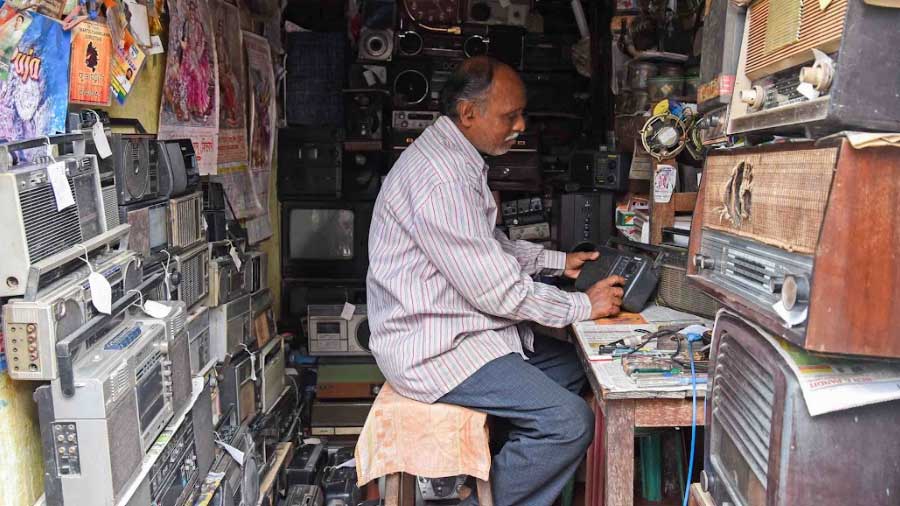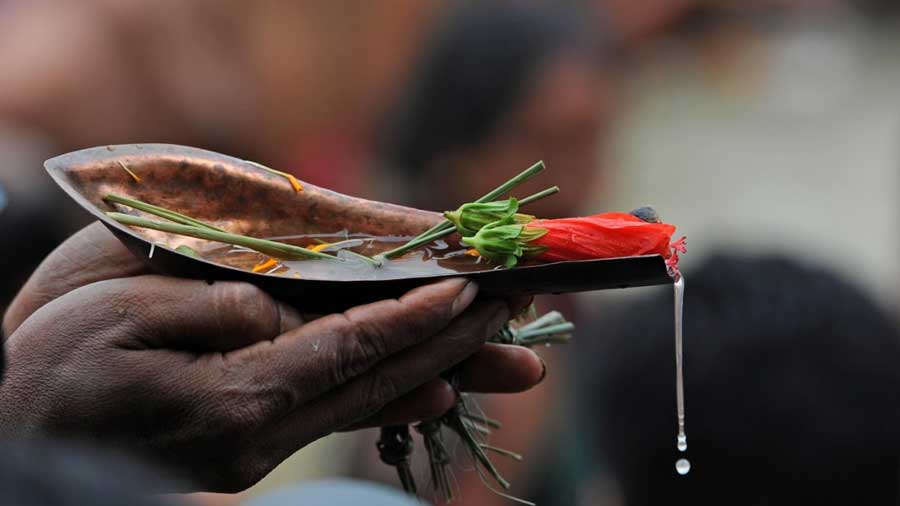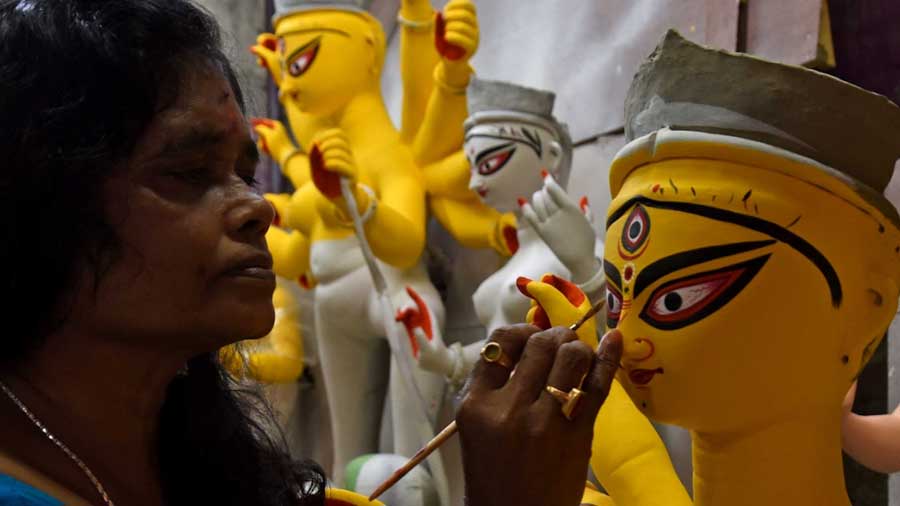Perhaps the sheer beauty of Mahalaya lies in its inherent Universality.
It is passed down from generation to generation like a carefully wrapped secret, complete with its own set of traditions — each one somehow unique to a family.
Some families will huddle together around the radio, sipping cups of tea. Still others will just remain in whichever room they are, with one radio at full volume so that the regal notes of Mahalaya can be heard wafting not just through the whole house but also down the road and almost to the end of the street where it mingles with the same notes coming from the tea-stall-owner's radio.

The weeks before Mahalaya are the busiest time of the year for Kolkata’s last standing radio repairman Amit Ranjan Karmakar, who runs a repair shop in Kumartuli. Amit Datta
Sleepy children who barely understand the concept of a radio, let alone the importance of something like Mahalaya, are vigorously shaken awake and even though they will complain and fall back asleep within the first 10 minutes, parents will tirelessly do it year after year. Somewhere down the line, those same complaints will blossom into curiosity until one year, they will somehow manage to stay up through the entire thing and of course then, there is no turning back. They will carry it with them even if the radio frequencies of where they are don't play Mahalaya. They will carry it with them even when their parents can no longer stay up through the entire thing. They will carry it with them to the end of their lives.

On Mahalaya, Bengalis wake up at the crack of dawn and head to the ghats to perform Tarpan - an age-old ritual conducted as a means of paying homage to the souls of departed parents/family members.. Amit Datta
No matter where in the world you are, if there's a Bengali anywhere in your vicinity, there’s a fair chance that you'll hear the faint notes of Mahalaya if you pass by their house in the kind of silence you only find at four in the morning.
In a world which feasts on our differences, threatening to tear us apart because of them, isn't it wonderful and relieving to know that at least once every year, thousands of people listen to the exact same thing at the exact same time and even if it's for just those one and a half hours, you all are forged together into this one whole? Your heartbeats pulsing along to that one track that's been with you perhaps throughout your life.
In a world ravaged by uncertainties, it's a strange source of unity. A strange source of hope.
Shubho Mahalaya.
